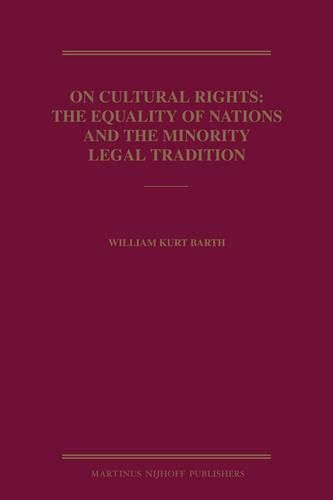Readings Newsletter
Become a Readings Member to make your shopping experience even easier.
Sign in or sign up for free!
You’re not far away from qualifying for FREE standard shipping within Australia
You’ve qualified for FREE standard shipping within Australia
The cart is loading…






This work addresses the question: how has the evolution of a legal regime within the United Nations and regional organisations influenced state behaviour regarding recognition of minority groups? The author assesses the implications of this regime for political theorists’ account of multiculturalism. This research bridges a gap between normative questions in political theory on multiculturalism and the international law on minorities. It does so by means of case studies of legal challenges involving two groups, namely, the Aboriginal peoples of Canada, and the Roma peoples in Europe. The author concludes by discussing the normative implications of the minority regime for helping to resolve conflicts that arise out of state treatment of minority groups.
$9.00 standard shipping within Australia
FREE standard shipping within Australia for orders over $100.00
Express & International shipping calculated at checkout
This work addresses the question: how has the evolution of a legal regime within the United Nations and regional organisations influenced state behaviour regarding recognition of minority groups? The author assesses the implications of this regime for political theorists’ account of multiculturalism. This research bridges a gap between normative questions in political theory on multiculturalism and the international law on minorities. It does so by means of case studies of legal challenges involving two groups, namely, the Aboriginal peoples of Canada, and the Roma peoples in Europe. The author concludes by discussing the normative implications of the minority regime for helping to resolve conflicts that arise out of state treatment of minority groups.